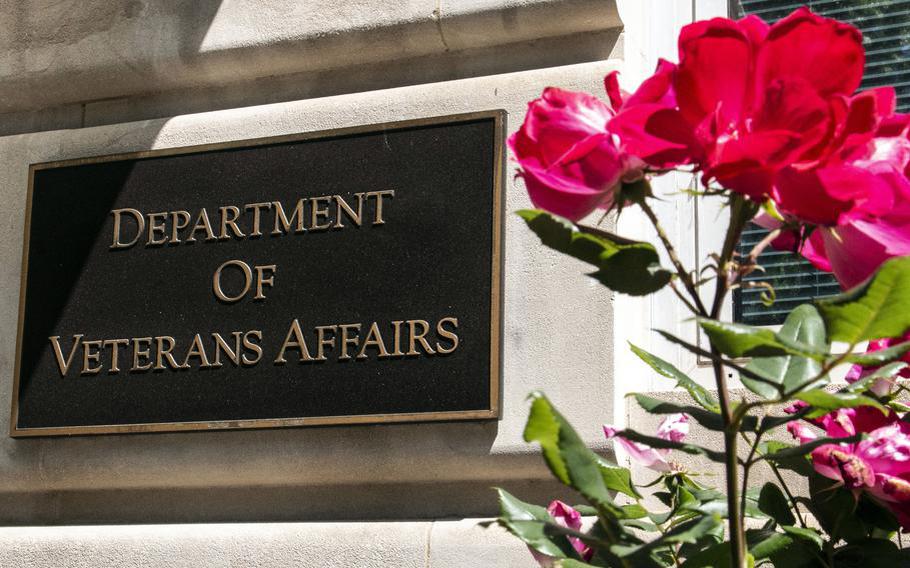
Psychiatrists registered with the Department of Veterans Affairs to provide care in the community often encounter payment delays and scheduling problems, causing them to leave the VA system, according to a former VA clinician now in private practice. (Stars and Stripes)
Two months in a coma. A traumatic brain injury. A medical retirement that cut a military career short. This was the reality for my fellow disabled veteran Adam Greathouse after he inhaled an unknown chemical toxin during a 2001 deployment to Kosovo. His story demands our attention not just for the personal tragedy it represents, but for the questions it raises about the long-term health consequences faced by our veterans.
The narrative around the Department of Veterans Affairs’ Veterans Health Administration (VHA) has been dominated for too long by soundbites and sensational headlines. We consistently hear about wait times and budgets, painting a picture of a system in crisis. While very real and persistent issues need to be addressed, what we often don’t hear is how VHA addresses the profound health challenges faced by veterans like Adam who need specialized care.
The VHA serves people whose military experiences are foreign to many civilian health care professionals. Like Adam, many veterans have experienced a wide range of chronic health issues including post-traumatic stress disorder, traumatic brain injury and illnesses related to toxic exposure.
One of the primary reasons VHA can provide this specialized care to veterans like Adam is because of its statutory mission to train health care professionals and emphasize the importance of medical research.
Established in 1946, the Department of Medicine and Surgery Act was the law that transformed the VA into a modern, research-oriented health care system to address the complex needs of returning World War II veterans and the needs of an aging World War I population. This landmark legislation also laid the foundation for the modern health care system we know today that emphasizes quality care, research and collaboration with academic institutions.
The VHA is a place where medical breakthroughs happen. We’re talking about innovations that have transformed lives across the globe: the shingles vaccine, the pacemaker, the first liver transplant. In fact, the VA holds over 600 medical patents — a testament to its relentless pursuit of medical advancement.
What makes the VHA truly unique is its integrated approach. Researchers aren’t confined to labs; they’re also on the frontlines providing direct patient care. This close connection between research and practice allows for rapid translation of discoveries into tangible benefits for veterans, and ultimately, for everyone. This model has produced Nobel Prize winners and Lasker Award recipients, solidifying the VA’s position as a leader in medical innovation.
Let’s be clear: the VHA isn’t perfect. Like any health care organization, it faces challenges. But shortcomings aside, it provides immense value to the veterans it serves and our nation. It’s a vital training ground for our medical professionals, a hub for groundbreaking research and a lifeline for the 9.2 million who sacrificed to earn the care they’re receiving. Identifying ways to make the VA more efficient is, of course, worthy of our consideration.
However, a federal hiring freeze, current and proposed workforce reductions, and the potential cancellation of research contracts all jeopardize innovations that could negatively impact veterans’ health care and the American public at large.
I urge lawmakers to consider the journey of Adam Greathouse as a stark reminder of the sacrifices made and the battles fought long after deployment. His story is also a testament to the essential role VHA plays in the recovery and rehabilitation of our nation’s veterans. Thanks to that continued support, Adam is now a compassionate volunteer who has donated thousands of hours at his local VA medical center, serves as a leader for his fellow veterans through DAV, and has inspired countless people through his story — none of which would have been possible without the care and support of the VA.
Instead of being swayed by attention-grabbing headlines, let us not neglect the VA’s mission to ensure veterans and their families receive the care, support and recognition they have earned. Balancing the federal budget on their backs is as unjust as it is morally reprehensible.
DAV offers the latest information about VA health care and legislative advocacy efforts through DAV CAN (Commander’s Action Network). Through DAV CAN, anyone — not just DAV members — can learn about and advocate for federal legislation that affects veterans and their families. Communicating with and educating lawmakers is vital to preserving and enhancing the VA health care system and benefits systems and other essential institutions.
Please visit and sign up at davcan.org to get involved.
Daniel Contreras is a service-connected disabled Army veteran who served as a combat medic and nurse from 1980 to 1996, achieving the rank of sergeant first class. He is the national commander for the DAV for 2024-2025.